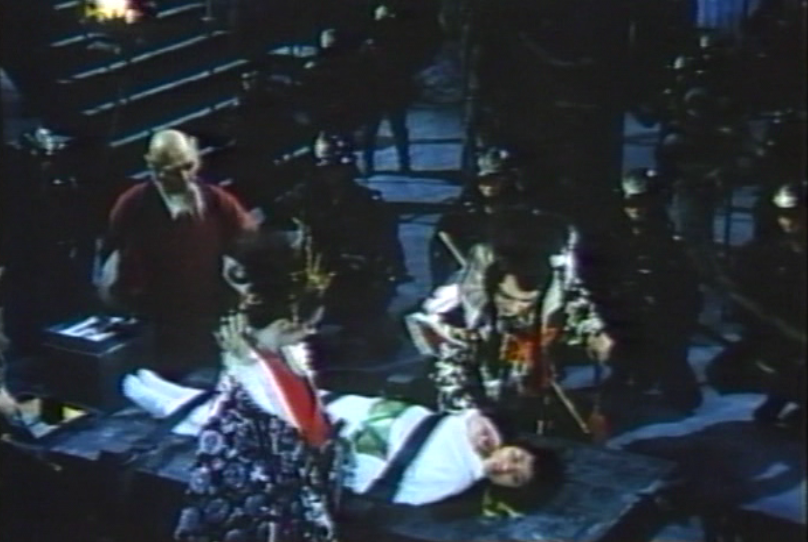Movie Review: Legend of Eight Samurai (1983) directed by Kinji Fukasaku
After a hundred years, the Hikita Clan is back from the dead to get their revenge on those who overthrew them. They’ve recaptured the family castle/shrine and wiped out all but one of the clan leaders descended from their enemies. Only Princess Shizu remains, but she is the most important. For there is a legend about eight warriors descended from a noble dog who will unite under the princess to end the Hikita Clan once and for all. Princess Shizu is now in search of those warriors. But wait–the ancient scroll shows three members of the Hikita Clan, but only two of their leaders have returned. Could this be important?

This blockbuster fantasy movie is based on an epic early Nineteenth Century Japanese novel Nanso Satomi Hakkenden by Kyokutei Bakin. The story runs to ten volumes in Japanese, so this 130 minute version cuts out a lot. Confusingly, the dub never makes mention of “samurai”, repeatedly referring to our heroes as “ninja” and of course the closer translation would be “dog warriors.”
The good: There’s plenty of exciting fight scenes (especially the climax where the united warriors storm the enemy stronghold) and nifty special effects. The villain actors are having fun hamming it up as pure baddies.
There’s an undercurrent of sadness as we learn that each of the warriors has had an unlucky life that leaves them free to support the princess when the fated time arrives, leaving them feeling cursed. Indeed, it threatens group cohesion by having them be enemies in the recent past. The most recognizable of the actors is Sonny Chiba as Dosetsu, who has a wasting disease that will kill him inside a month even if he survives the battle. Most of the screen time, though, goes to Hiroyuki Sanada as Shinbei, a scruffy scoundrel who initially is motivated by money before falling in love with Shizu.
Less good: Much less time is spent developing any of the other warriors, especially the two that are just found hanging out in a cave and whose personalities are “the big one” and “the small one.” Some time probably could have been spared from the extended “music video” sequence where Shinbei and Shizu make out to an 80s pop ballad, but then they wouldn’t have that for Japanese MTV.
The last bit of the ending feels tacked on, as though the test audiences didn’t like the original ending and a couple of minutes were added afterwards to sweeten it.
And the less said about the dubbing, the better. Sadly, my copy did not come with a subtitled option.
Still, this is a blockbuster movie based on a classic novel, so I’d recommend it to epic fantasy fans, particularly if you can find it with the original voices.

